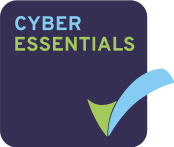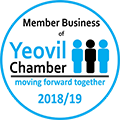 Gosh, where did the time go? It feels like we were just enjoying Wimbledon the other week. And yet here we are, about to dive into a whole new year. Which can only mean one thing: it’s New Year’s resolution time. If you’re a business owner, we’ve had a few ideas about what you could tackle in 2018 that will actually benefit you and your business. Let us know if you think of anything else.
Gosh, where did the time go? It feels like we were just enjoying Wimbledon the other week. And yet here we are, about to dive into a whole new year. Which can only mean one thing: it’s New Year’s resolution time. If you’re a business owner, we’ve had a few ideas about what you could tackle in 2018 that will actually benefit you and your business. Let us know if you think of anything else.
New Year’s Resolution #01: Set a vision for the year
First things first: there is no point setting yourself a bunch of arbitrary goals if you don’t know where you’re going. And don’t just say ‘forward’ or something silly like that. You know as well as we do that setting a strong vision at the beginning of the year will motivate not just you but your entire team. So give it some thought. And don’t forget to tell the rest of them or they’ll get very lost indeed.
New Year’s Resolution #02: Declutter
You know you’ve been putting it off. That storage room is a hazard to anyone who dares venture beyond the first stack of archive boxes. It’s time to decide what can be destroyed, what can be scanned, and what can be stored off site. Don’t wait until spring. You’re a business leader – be ahead of your time! Get it done now. You’ll feel smug when March rolls around.
New Year’s Resolution #03: Turn off all IT notifications
You know what it’s like when you’re just getting your head around the latest P&L forecast, and suddenly: ping! You’ve got an email. It’s from Susan in HR, and judging by the shouty capital letters in the subject line she doesn’t sound pleased. Notifications are the enemy of productivity. Turn them off. That means social media too. If Susan needs you that urgently, she can come and talk to you in person.
New Year’s Resolution #04: Start taking a lunch break
We don’t mean to sound like your mum, but are you getting enough rest? And decent food? You won’t be particularly productive if you’re running on empty you know. And no, coffee doesn’t count. Get a sandwich into you! And go eat it outside. We don’t care if it’s cold, that’s what coats are for – you need a screen break.
New Year’s Resolution #05: Introduce flexible working
This is super trendy at the moment, so if you’re looking for good boss bonus points then this is the way to go. It’s actually a win-win staffing strategy too. Your team will be less stressed and more productive if they can work hours that suit them better, and you’ll attract more (and potentially better) candidates when hiring. Plus it’s an excuse to knock off early on a Friday, which is always nice.
New Year’s Resolution #06: Go paperless
Another worthy cause, and a tick on the environmental responsibility checklist. Again though, this is not just about looking good. Going paperless – by switching to a digital filing system, for example (less-than-subtle plug: we can help with this) – will actually save you time and money. So everyone is happy. Except maybe your stationery supplier.
New Year’s Resolution #07: Learn to delegate
Finishing with a corker, aren’t we? No matter how big your team, there are probably jobs you do that someone else could do just as well, right? Perhaps even better? Sitting at your desk until 8pm every evening doesn’t make you successful, you know. It makes you tired. And grumpy. Just ask your PA.
If you’ve got a goal for 2018 that we can help with, drop us line. Or come and see us. We might even let you have some of our left over Quality Street. See you soon!
 We work with some brilliant clients and we like to think they’re all pretty happy with the work we do for them. But every now and then we get a testimonial through that really warms our hearts. And this time of year seems to generate an influx of them for some reason.
We work with some brilliant clients and we like to think they’re all pretty happy with the work we do for them. But every now and then we get a testimonial through that really warms our hearts. And this time of year seems to generate an influx of them for some reason. Imagine, just for a moment, that you had a free office. As in empty rather than rent free. Like if you somehow managed to eliminate several dozen boxes of paper archives (you know, by
Imagine, just for a moment, that you had a free office. As in empty rather than rent free. Like if you somehow managed to eliminate several dozen boxes of paper archives (you know, by  One thing we’re particularly proud of here at Scan Film or Store is the relationships we build with our clients. Many of them stay with us for years, and we get to know them pretty well. Which is nice.
One thing we’re particularly proud of here at Scan Film or Store is the relationships we build with our clients. Many of them stay with us for years, and we get to know them pretty well. Which is nice. Of course, it’s easy enough to say why we think our clients are happy with our service – but far better to ask them to say it for us. Here’s what Maria Tyley, Divisional Accountant at
Of course, it’s easy enough to say why we think our clients are happy with our service – but far better to ask them to say it for us. Here’s what Maria Tyley, Divisional Accountant at  Paper. It’s pretty simple, as technology goes. Sure, you can get it in different sizes and colours and textures, with lines or without, sturdy or flimsy enough to see through. But essentially, it’s bits of flat stuff that you can write or draw on. Not especially complex.
Paper. It’s pretty simple, as technology goes. Sure, you can get it in different sizes and colours and textures, with lines or without, sturdy or flimsy enough to see through. But essentially, it’s bits of flat stuff that you can write or draw on. Not especially complex. Well, this is a very good day. After months of work logging our firewall defences and detailing how we manage passwords, we’ve finally been awarded certification under the
Well, this is a very good day. After months of work logging our firewall defences and detailing how we manage passwords, we’ve finally been awarded certification under the  Granted, it was not the most thrilling of jobs. There was a lot of paperwork to organise, and systems to catalogue, and other things that you probably aren’t all that interested in hearing about. But it was an incredibly useful process, and even helped us make improvements to our already very good security processes.
Granted, it was not the most thrilling of jobs. There was a lot of paperwork to organise, and systems to catalogue, and other things that you probably aren’t all that interested in hearing about. But it was an incredibly useful process, and even helped us make improvements to our already very good security processes.  Remember that old James Bond film, The Spy Who Loves Me? In it, Roger Moore’s Bond is tasked with recovering stolen plans for a highly advanced submarine tracking system – plans that are contained within a roll of microfilm.
Remember that old James Bond film, The Spy Who Loves Me? In it, Roger Moore’s Bond is tasked with recovering stolen plans for a highly advanced submarine tracking system – plans that are contained within a roll of microfilm. It’s surprising how long making a decision can take. Even something simple like what to order at the local Chinese or whether you ought to wear the red or the blue tie for that client meeting tomorrow.
It’s surprising how long making a decision can take. Even something simple like what to order at the local Chinese or whether you ought to wear the red or the blue tie for that client meeting tomorrow. Data security is something every organisation of any size needs to think about. Whether you’ve got a few client files locked in a store cupboard or a multi-premises operation linked via sophisticated technology, everyone is at risk.
Data security is something every organisation of any size needs to think about. Whether you’ve got a few client files locked in a store cupboard or a multi-premises operation linked via sophisticated technology, everyone is at risk.






